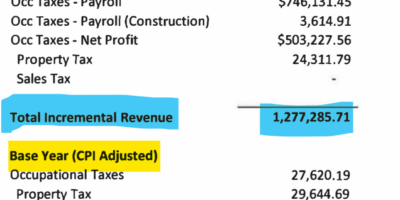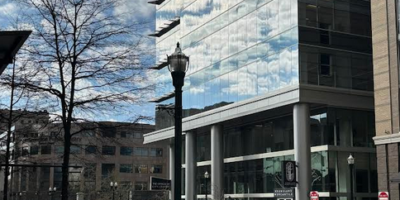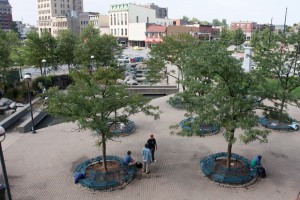City avoids responsibility, leadership
By Jeff Gross
What, if anything, the LFUCG will do about the Catholic Action Center remains to be seen, and it will say a lot about our community’s values. Following the Herald-Leader story on the LFUCG councilmembers’ response to concerns raised by the Center’s neighbors, councilmembers have said little publicly on the issue, awaiting community feedback at an upcoming public safety committee meeting.
On the other hand, the Catholic Action Center has attempted to improve their neighborhood presence and services. They are expanding meal delivery services for their elderly neighbors. They are visiting neighbors to find people who would benefit from this service. They have also reiterated that the public is welcome to their Tuesday free medical clinics. As a friend remarked upon seeing this news on a Quaker listserv, “Evidently, the way the Catholic Action Center handles criticism is to reach out and help the community even more!”
As the Catholic Action Center works on being a better neighbor and expanding their services to meet the needs of those who live in the vicinity, Lexington risks joining other U.S. cities that have criminalized homelessness and violated U.N. human rights guarantees in the process. On August 26, the day after my “The war on the homeless” came out, The Huffington Post reported on an August 2 United Nations report on safe drinking water and sanitation. Based on independent researcher Caterina de Albuquerque’s February 22-March 4 tour of the U.S., The “Report of the Special Rapporteur on the human right to safe drinking water and sanitation” found that while the vast majority of U.S. citizens have access to drinking water and sewage, these rights are often denied to those persons experiencing homelessness.
The report expressed concern that some U.S. cities had moved to criminalize homelessness rather than to address the human needs and concerns of individuals experiencing homelessness. The report argued that statutes prohibiting public urination and defecation were used in discriminatory ways against homeless individuals who had no access to public restrooms, due in large part to cities’ unwillingness to provide public facilities: “Furthermore, there is an increasing trend in local governments to limit opening hours or close entirely public restrooms. Such decisions are contrary to the need to create an enabling environment so homeless individuals can realize their rights to water and sanitation.”
A basic human right
While no federal law guarantees access to safe drinking water or sanitation, international guidelines do protect it as a basic human right. The U.N. report explains, “At the international level, the human right to safe drinking water and sanitation derives from the right to an adequate standard of living,” which is protected under several articles in the Universal Declaration of Human Rights and the International Covenant on Economic, Social and Cultural Rights. “This right was also recently recognized by the General Assembly and reaffirmed by the Human Rights Council, with the support of the United States of America.”
At the end of the section on homelessness in the U.N. report, the special investigator concludes, “The United States, one of the wealthiest countries in the world, must ensure that everyone, without discrimination, has physical and economic access, in all spheres of life, to sanitation which is safe, hygienic, secure, socially and culturally acceptable, and which provides privacy and ensures dignity. An immediate, interim solution is to ensure access to restrooms facilities in public places, including during the night.”
When I researched my 2010 NoC story on Phoenix Park, I learned that one of the most common complaints among downtown residents, business owners, and library patrons was the human excrement around the park, library, and parking garages (especially in stairwells). Human waste does pose a public health threat, and residents were right to be concerned. The wrong response, though, pins this responsibility solely on those experiencing homelessness, and not on Lexington, which provides no downtown public restrooms available overnight.
By providing drinking water, toilets, and showers, the Catholic Action Center and the Community Inn (jointly operated at 824 Winchester Road by the Catholic Action Center and Emmanuel Apostolic Church) help make sure that Lexington meets these internationally recognized standards of living. They also offer an alternative to having to arrest people for public urination or defecation. The Center and Inn now combine to offer 24 hour access to water, restrooms, showers, and other services.
Open daily from 8:00 A.M. to 7:00 P.M., the Center serves three meals and continues to offer showers and other services, which include a public health clinic and a Veteran’s Affairs representative on Tuesdays. Open daily from 7:00 P.M. to 8:00 A.M., the Inn provides restrooms, showers, lockers, and beds to 75 persons. It has been filled to capacity on some nights.
The Catholic Action Center and the Community Inn provide persons experiencing homelessness access to these internationally recognized rights—at no expense to the city and in response to public needs that the city rejects. The city needs to work with these organizations and others like them to make sure that all persons continue to have access to clean water and safe sanitation options. I don’t know about you, but I would be embarrassed to live in a city that feels the need to have a world-class downtown arena but can’t even provide first-world human rights for all of its citizens.





Leave a Reply